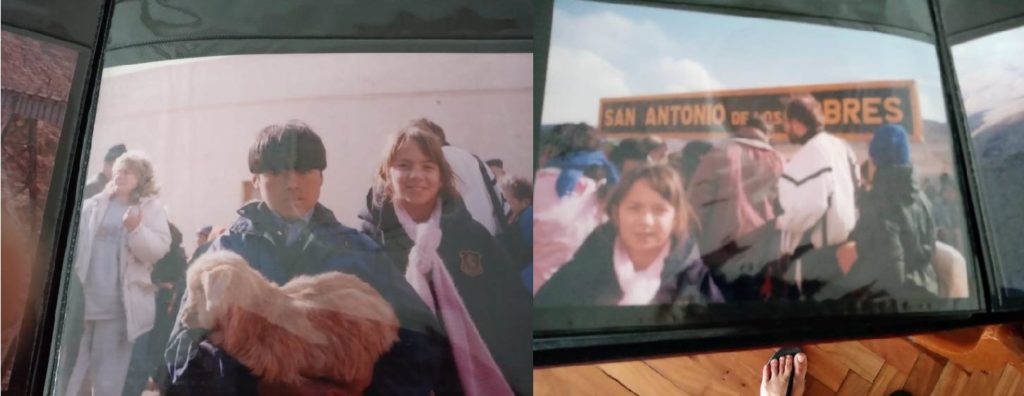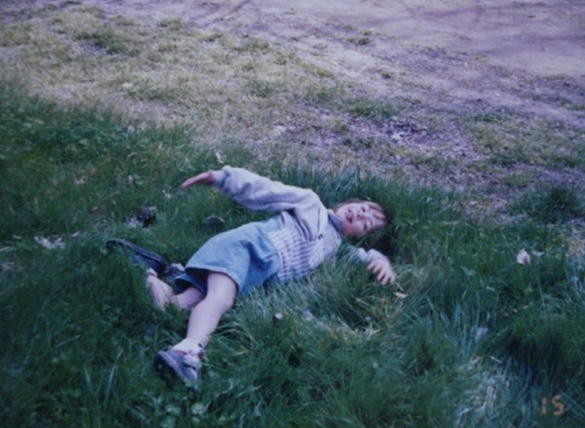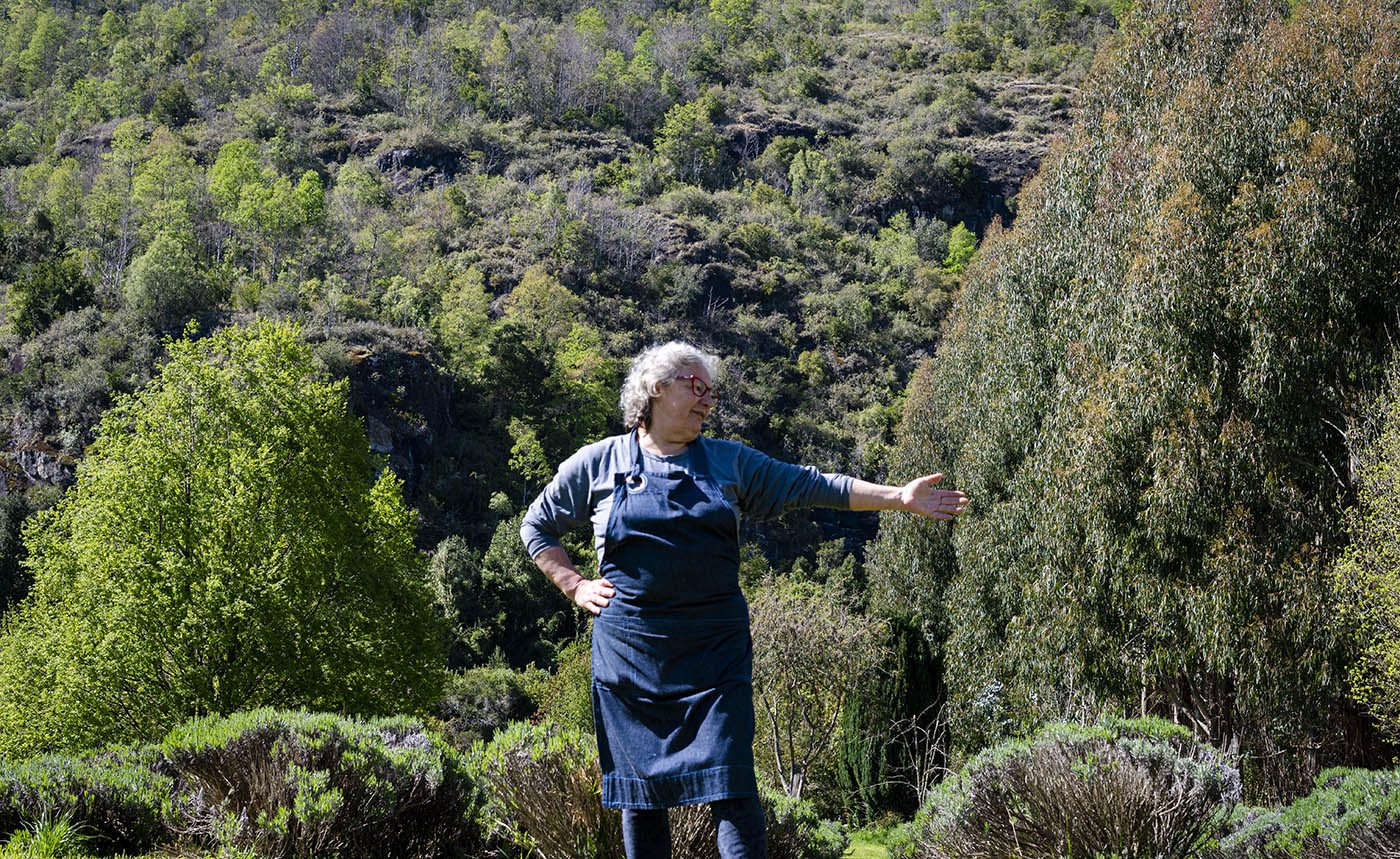One Saturday afternoon that seemed like any other, my phone buzzed: ‘Voice message from Lili Chile Ok,’ I read, and I instantly knew that a transformative wind was coming. It has been eight years since Lizzania – Co-Founder of artisanNow – bid farewell to Buenos Aires to travel through Latin America, expanding her work as a visual artist. Fortunately, I had the privilege of closely following her art. Just like that Saturday, every time I receive a message from her, I get comfortable and prepare for the adventure, wondering what her new project will be or where she will travel. Over the years, I have followed from a distance her activism across Latin American territories and the struggles it entails, always inspiring me to reflect and question my way of inhabiting space, my work as an artist, and my actions within the territory.
This time, it was not only different but also doubled the stakes, as she invited me to travel with her from a distance, exploring experiences and territories addressed by her new project, artisanNow – a platform whose mission is to showcase the learning experiences of craftswomen from rural Latin American villages, the issues of the territory, and its natural treasures. Once again, her proposal enables the voices of people who are not in the foreground, who may not have access due to a lack of resources, and who experience issues that are sometimes very different from ours and, at times, surprisingly similar.
When Lizz shared her experiences with me, along with the craftswomen, the platform she had created with Virginia and other women, the connections between their activities, the territory, technology, their new reach, and tourism, a deep memory from my childhood suddenly came flooding back.
When I think of artisanNow, I think of the importance of heritage. Of cultural identity, of my grandmother sewing and cooking. Of the girls who give up the inheritance of these trades and escape to the cities due to the lack of profitability of local activities. I think of tourism and the commitment of tourists, of the ways of inhabiting those territories. I think of myself as a tourist in rural villages and I travel back to my childhood.
My first experience in a remote rural artisan village was when I was a child. I was nine years old and traveling to a village over four thousand meters above sea level in Salta. I got off at the ‘San Antonio de los Cobres’ station of the ‘Train to the Clouds.’
Some flashy and eclectic memories are etched in my mind. The first one was realizing that there was a village in those mountains; I remember being very concerned about how the children went to school, imagining that they had to descend those meters to study. The sign with the station’s name was another thing that impressed me the most. It had exactly the same format as the ‘Flores’ station sign on the Sarmiento line, the one I took every weekend to visit my grandmother in Ituzaingó. The same font, I thought. It’s written in the same font. And I was immediately overwhelmed by how different yet the same that station was and the feeling that I would never go there again because of how complex and expensive it was to reach.
The second memory was of children running towards me because I had candies, and one particular child who sold me a photo with a baby llama for $2. I immediately understood that their economic system depended heavily on tourism, their art, and the promotion of their culture. All those people of different ages were waiting for tourists to boost their economy. Given the difficulty of access for potential individuals interested in consuming, learning, and collaborating with different cultures and territories, I believe that the presence of artisanNow in the artisan circuit is essential to promote various techniques, experiences, and cultures, but, most importantly, to include them in a real economic system where they are taken into account, and where they can also network. In this aspect, the hybrid approach proposed by artisanNow guarantees proximity, as sites that are difficult for some interested parties to access are available through the digital platform. For all those who want to access in-person experiences, they have a guide, contacts, and the opportunity to meet and access their handicrafts. artisanNow is about reclaiming the territory, taking action, embracing its nature, and collectively celebrating ancestral diversity. Let technology showcase tradition and collaborate to include territories, women, and crafts within the economic system.

To celebrate the pots and open the houses
Excited, like a fly, I feel about this new project that celebrates pots and promises to grow and open the homes of thousands of women artisans throughout Latin America. Excited because, as a learner of artisanal dyeing methods and as a general curious person, I recognize myself in many of the actions of these women artisans who, in the words of Lizz, ‘move the pot.’
Pots where dyes and everyday food are cooked, and whose residues become future dyes in the same pot, in the same house, warming the home all day. This ritual act that always happens in the same house, with the same elements, and with different results seems like a celebration to me, and that word seems to be the most fitting to describe artisanNow. I dare to conceptualize artisanNow in this way because it brings me joy that there are women today who create networks of women for women. Networks that grow among women artisans, digital creators, programmers, and tourism managers, diverse networks that expand from the digital realm and embrace all of us, inviting us to join.
Officially, the network is created, and without a doubt, it’s something to celebrate. Today, from this privileged position, which I hope doesn’t feel too big for me, it’s my turn to continue my part, connect more women and people interested in telling them what artisanNow is, and inviting them to participate in the platform and continue weaving networks and possibilities for everyone. Each course’s experience and craft are of unique richness because they hold ritual and unique value. Celebration is my chosen word for this project; it’s what drives me and gives me hope that by connecting and collectively thinking about it, each from their own place, we can transform unequal realities.
As Lizz told me, ‘I don’t believe our proposal will end the serious issues of gender, territory, and the lack of opportunities in rural sectors, nor do I think it’s the solution to the limited presence of women in technology and creative industries, but by working on this, we can make it better.’ Similarly, I think that by creating a collaborative space for and by collaborative people, we are taking a significant step, or rather, actively stepping into and inhabiting a place.
Today, I celebrate this gift, learning age-old techniques and experiencing different stories. I also celebrate shedding light on those spaces that weren’t on the market’s agenda or perspective. I celebrate unity, support, and the invitation for you to join me on this remote journey. The invitation includes learning to sew, knit, make baskets, soaps, and other treasures, but above all, it’s an invitation to travel and gain experience from afar, to listen, see, and experience new ways of learning, connecting, and participating in economic circulation as part of something bigger than ourselves.
Pots where dyes and everyday foods are cooked, the residues of which become future dyes in the same pot, from the same house, heating the home all day. This ritual act that always happens in the same house, with the same elements and with different results seems like a celebration to me and that word seems to be the most appropriate to describe artisanNow. I dare to conceptualize artisanNow in this way because it makes me happy that there are women today who generate networks of women for women. Networks that grow among women artisans, digital creators, programmers and tourism managers, diverse networks that expand from the digital and embrace us all, invite us to join.
Officially the network is created and without a doubt it is something to celebrate. Today it is my turn from this privileged place, which I hope is not too big for me, to continue spinning my part, connecting more women and people interested in telling them what artisanNow is and inviting them to participate in the platform and continue weaving networks and possibilities for everyone since The experience and craft of each course is of singular richness because it enjoys its ritual and unique value. Celebration is my chosen word for this project, it is what drives me and gives hope that by connecting and thinking collectively, each one from their place, we can transform unequal realities. As Lizz told me, “I do not believe that our proposal will end the serious problem of gender, territory and lack of opportunities in rural sectors, nor that it will be the solution to the low presence of technological and creative women in the digital industry, however. , by working on this we can improve it.” In the same way I think that by existing a collaborative space for and by collaborative people we are taking a big step, or rather, actively stepping on and inhabiting a place.
Today I celebrate this gift, learning ancient techniques and learning different experiences. I also celebrate the illumination on those spaces that were not within the agenda or the market perspective. I celebrate the union, the support and the invitation to join this long-distance journey with me. The invitation includes that they learn to sew, weave, make baskets and soaps and other treasures, but above all things that they travel to experience from a distance, to listen, see and experience new ways of learning, connection and economic circulation forming part of something bigger than us.





